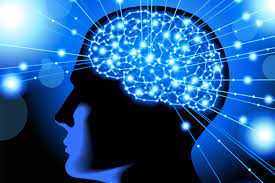Roohealthcare.com – Our aging population has many challenges, including the deterioration of brain health and the ageing process. The number of people aged 60 and older worldwide is approaching 900 million and is expected to double by 2050. The increasing ageing population increases the burden of neurological diseases and challenges to brain health. Symptoms of neurological disorders can include physical disability, mental health disorders, social dysfunction, and more. While there is currently no cure for dementia, there are several ways to protect brain health and promote longevity.
A More Comprehensive Definition of Brain Health
To date, research has demonstrated that individuals with brain resilience can delay the onset of symptoms, reduce or even eliminate the behavioral impact of pathologies. Therefore, future research on brain resilience should focus on the factors that promote resilience. For example, delaying the onset of symptoms of dementia by one year could prevent the disability of over 11.8 million people and save $219 billion in healthcare costs over the next 30 years. But there is still a large knowledge gap that hinders such personalized prescription of lifestyle changes.
The lack of coordination may be related to the lack of consensus on a definition for brain health. Current definitions of brain health are based on a medical model, focusing on disease or disorder, not wellbeing or happiness. A more comprehensive definition of brain health in adults would include complete wellbeing and continuous exercise of the brain. Such a definition would require agreement on a core set of standards that can be updated with the increasing body of knowledge. That way, brain health could be better defined and improved for everyone.

Efforts to improve brain health should be based on research and the recommendations of the AARP’s Global Council on Brain Health (GCBH). The GCBH is an independent group of experts who aim to improve brain health worldwide. Although the GCBH’s recommendations are based on scientific research, there is no evidence that brain health is the cause of all disease. Aside from scientific research, public health initiatives are also important.
Exercise Can Lower The Risk Of Blood Vessel Disease
Our brain is the most important part of our bodies. It controls our ability to communicate, problem-solve, and perform daily tasks. Therefore, a healthy brain is vital to our overall health and happiness. Similarly, exercising regularly can prevent cognitive decline, improve blood pressure, and lower the risk of vascular disease. And while there are no specific exercises that can prevent all forms of aging, regular exercise will help maintain healthy brain function. If you want to stay active and enjoy the benefits of brain health, consider joining a fitness class or attending an exercise class.
While physical exercise is important, mental exercises are just as important. They promote brain cell growth and improve cognitive functioning, and may even reduce the risk of dementia. We can improve our brain health by leading a social life. Studies have shown that people with a more socially active lifestyle are less likely to experience memory loss. And they may also have a longer lifespan. It’s all about preventing brain damage, which is the goal of most people.

Regular exercise has a beneficial effect on brain health. Exercise is an excellent form of stress relief, and it is highly effective in boosting your overall health. Many physical activities, such as running or biking, improve memory function, and even reduce the risk of Alzheimer’s disease. And while there are a variety of preventive measures for dementia, regular exercise is the most powerful. This exercise can improve your mental health and help you cope with the challenges of daily life.
How to Maintain a Lifestyle
Ultimately, brain fitness is about maintaining your lifestyle. Not only does diet, exercise, social interaction, and sleep improve your memory, but also the blood flow in your brain. And exercise also stimulates the release of chemicals that improve mood, learning, and thinking. Ultimately, brain health is the goal of living a happy, healthy, and productive life. If you have time to exercise, your brain will thank you. You may even feel less stressed afterward.

Another important aspect of healthy eating is a healthy diet. Foods that are rich in polyunsaturated fats such as omega-3s can improve your brain’s health. Likewise, fish and unprocessed plant foods are rich in monounsaturated fatty acids. Limiting salt intake can also help. Avoid processed foods as they contain fats that damage the brain. To avoid these foods, include as many fruits and vegetables as you can.
Reference: